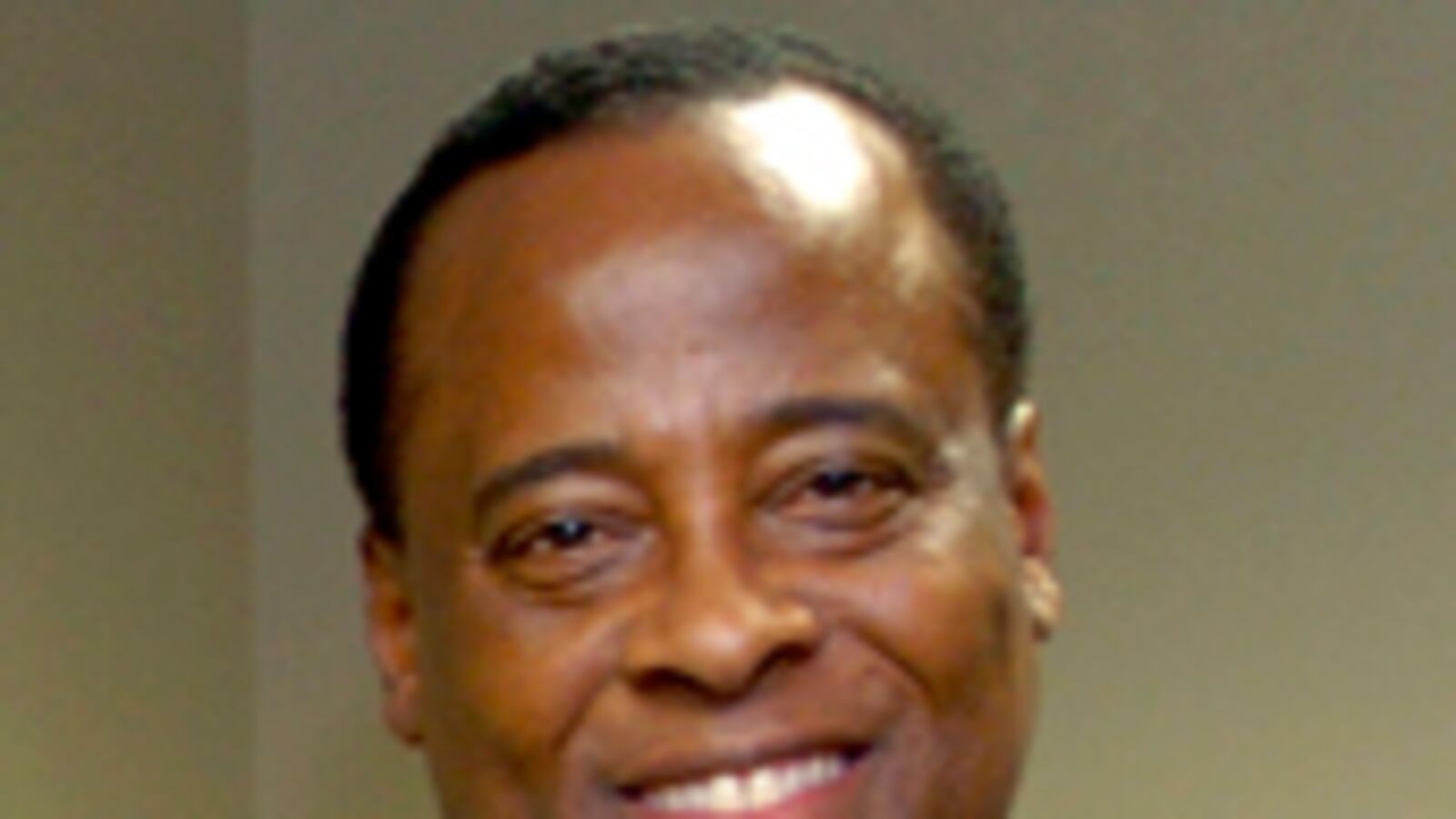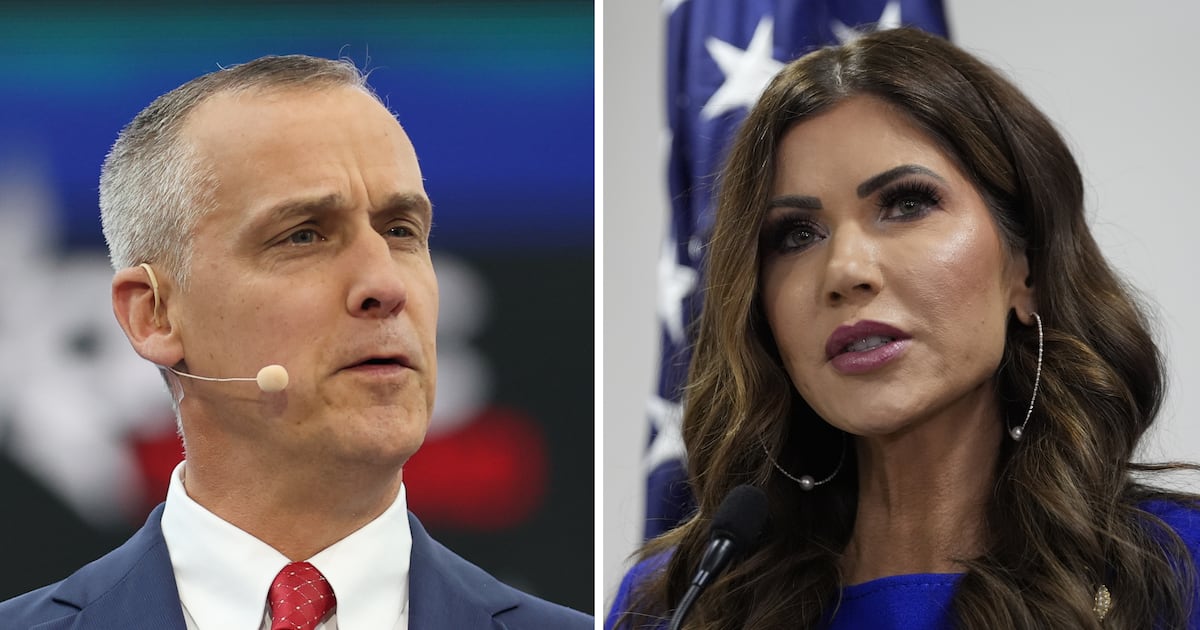
Law enforcement searched the home of Dr. Conrad Murray, Jacko's personal doctor, in July following reports that Murray administered the pop star's fatal injection. The Daily Beast’s Gerald Posner on the doctor's defense, and why the doctor’s legal team is hoping for an Elvis-like toxicology report.
A “law-enforcement official with knowledge of the investigation” into Michael Jackson’s death claims that Dr. Conrad Murray administered Propofol, the powerful anesthetic that authorities believe killed the pop star, the Associated Press is reporting.
In searches of Jackson’s home after his death June 25, the police confiscated Propofol—also known by the trade name Diprivan—among other drugs, an IV line, three oxygen tanks in Jackson’s bedroom, and an additional 15 oxygen tanks in a security guard’s shed. According to the AP, the law-enforcement source said Jackson had trouble sleeping and that he had different doctors administer Propofol, using the drug as an alarm clock.
Overcoming the issue of why a doctor would use Propofol at all, in a house setting and not a hospital, will not be an easy one for the defense team.
Jackson would decide what time he wanted to get up, and a doctor would stop the intravenous drip that delivered the drug at the appointed hour, according to the official. This is the boldest in what appears to be a coordinated series of leaks by Los Angeles investigators to build a public case for either second-degree murder or voluntary manslaughter charges in Jackson’s death.
Dr. Murray’s defense team had no comment on the AP report. But if true, the news makes the upcoming release of the toxicology report from the coroner’s office ever more important.
The Daily Beast was told by a source familiar with Jackson’s toxicology report that traces of at least six prescription drugs were found in his body. (Craig Harvey, the chief investigator of the Los Angeles Coroner’s Office, did not respond to two calls seeking comment.)
The best hope for the defense team is that the toxicology report is Elvis-like. When the original King of Rock ‘n’ Roll died at the age of 42 in 1977, 10 drugs were found in his body. Four were in “significant” quantities: codeine; Ethinamate, a popular sedative-hypnotic med of the 1970s; Quaaludes; and a barbiturate, or depressant, that has never been identified but is usually reported as Phenobarbital. Presley’s body also contained smaller amounts of the painkillers morphine and Demerol; tranquilizers Placidyl and Valium, and Chlorpheniramine, an antihistamine.
Presley’s body had no traces of his admitted favorite drug, Dilaudid, called the “Bentley of Heroin” on the street and recognized by doctors as between two to eight times more potent than morphine. (Dilaudid was pinpointed as the culprit in the May accidental overdose death of Las Vegas comedian Danny Gans.)
The more drugs in Jackson’s toxicology report, the better for Murray’s defense. His lawyers could then contend that even if the prosecution can establish that Murray gave Jackson Propofol the night he died, the doctor might have adjusted the dosage, or refused to give it at all, if he knew that Jackson was mixing other prescription medications, prescribed by other doctors, and hidden in the house.
Murray’s lawyers are likely to contend that if their client did provide Jackson with Propofol, that the singer had been warned he could not take any other drugs, and moreover, Murray had received the pop star’s assurance that he would not take any prescriptions without informing him.
Overcoming the issue of why a doctor would use Propofol at all, in a house setting and not a hospital, will not be an easy one for the defense team. Propofol depresses breathing and lowers the heart rate and blood pressure. Because of the risks, it is only supposed to be administered in hospitals and is not available by prescription for use outside a hospital, medical clinic, or doctor’s office where surgical procedures are done.
Instructions on the drug’s warning label say patients must be monitored continuously and that equipment to maintain breathing, to provide artificial ventilation, and to administer oxygen if needed must be constantly available. It also warns about reducing the dosage if the patient uses narcotic pain relievers or other opioids or sedatives.
To the extent Murray’s defense team can show the pop star may have caused his own death by sneaking in other medications on top of the sleeping agent he demanded, they hope to convince a jury that Jackson’s death was a terrible tragedy, but not a criminal act.
Murray’s legal team reiterated to The Daily Beast that their client did not prescribe or administer anything that should have killed Jackson.
Xtra Insight: Gerald Posner on whether the doctor did it.
Gerald Posner is The Daily Beast's chief investigative reporter. He's the award-winning author of 10 investigative nonfiction bestsellers, ranging from political assassinations, to Nazi war criminals, to 9/11, to terrorism. He lives in Miami Beach with his wife, the author Trisha Posner.






